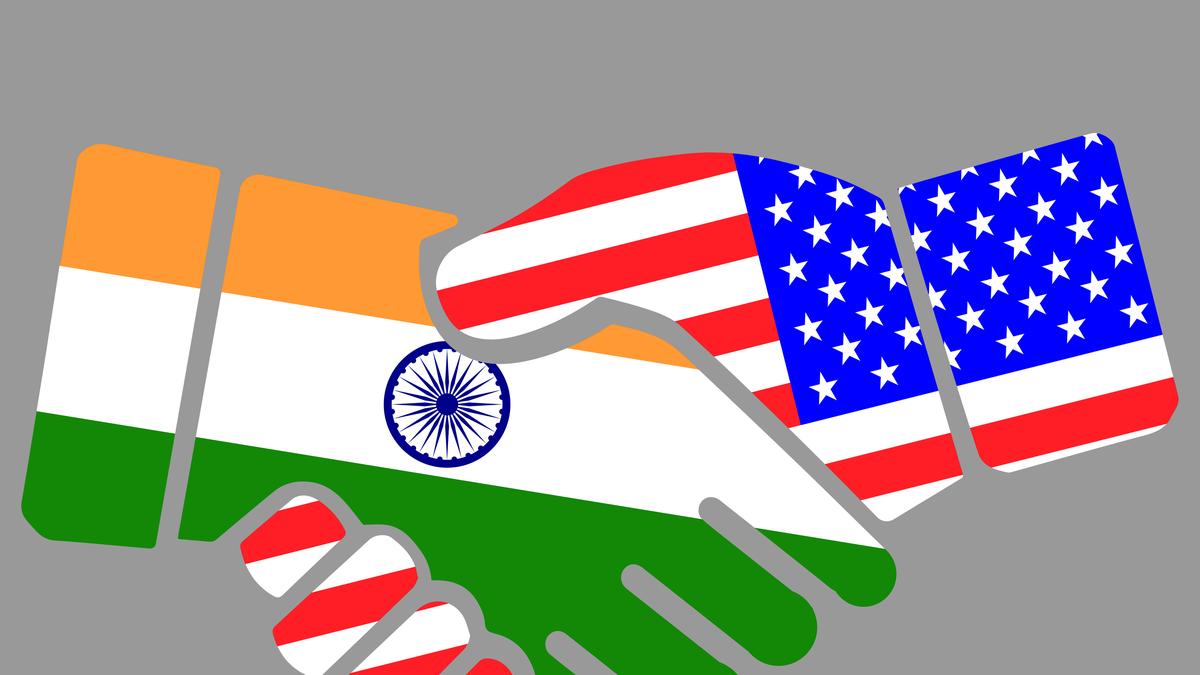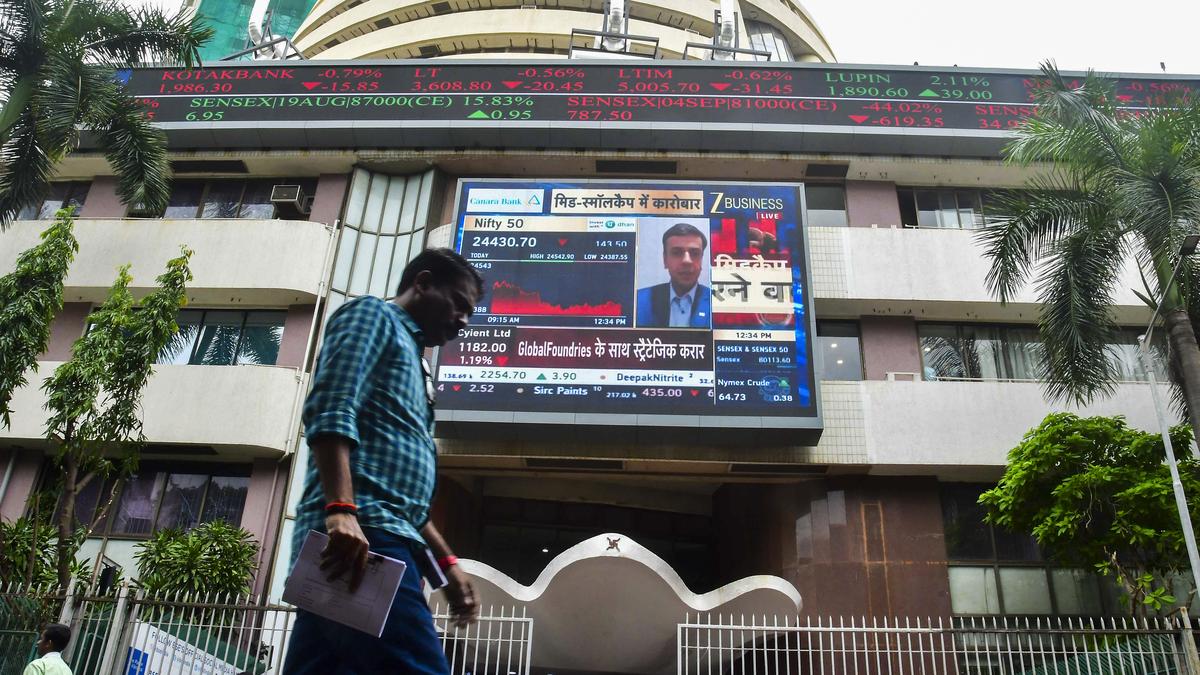the story So Far: After nearly three-and-a-half years, India and Britain finally indicated a free trade agreement (FTA) this week. Commerce Minister Piyush Goyal said that Pact would set a new benchmark for “justified and ambitious trade” between two large economies. Although the Fineprint has not yet been made public, the domestic industry has welcomed the announcement amid concerns about the possible impact on agriculture and medium and small enterprises (MSMEs). The deal is likely to be signed after three months, and it will take a year to implement it.
Why is the deal important for both countries?
Britain is the 16th largest trading partner in India and India is the 11th largest partner in Britain. According to estimates from the Government of India, their bilateral trade is about $ 60 billion with India, enjoying a positive trade balance, which is expected to double by 2030. The new trade deal assessed by the British government will increase bilateral trade by $ 34 billion. The agreement comes under the backdrop of global trade under the uncertainty initiated by the tariff regime of US President Donald Trump.
Also read India-UK FTA: quota engine capacity, price based on cars
What are the expectations from FTA?
Although the details have not been published, the British government said that it would benefit from India to agree to slash the tariffs at 90% of the product categories for export, of which 85% of which became “tariff-free” within a decade. Furthermore, based on its assessment on 2022 prices, it was estimated that the deal of $ 534 million in tariffs would be saved when implemented. On the other hand, New Delhi hopes to abolish tariffs at 99% of its export product categories. It expects an increase in export opportunities for areas such as textile, leather, footwear, auto parts, engineering, as well as gems and jewelery. The British government mentioned the automotive, whiskey and the tariffs on the sectors, which were in the grip of Mr. Trump’s tariff. Alcoholic beverages from the UK are now currently 150% to 75% tariff rate. This will decrease further within a decade. Tariffs on automobile exports stand over 100% to 10% with a certain quota based on the price for traditional combustion engine vehicles and capacity for electric vehicles.
With respect to services, India has exempted the UK to temporarily pay social security contribution for Indian workers and their employers for three years under the double contribution conference. During a conversation with the then conservative government, the immigration was one of the major points of dispute. The FTA would also like the visa processes remain “transparent” and no “unnecessary” obstacles are created in the professional journey.
How has the domestic industry responded?
The Indian industry is excited about the announcement and expects a spike in exports. Clothing is one of the major items of export to UK Mithileshwar Thakur, the general secretary of the Apparel Export Promotion Council (AEPC) told The Hindu that exports are expected to “grow rapidly”. He said that India will now enjoy duty-free access in the UK markets like its main rivals Bangladesh and Vietnam. On the competition, he clarified that there was hardly any import from the UK in the region.
The Indian automobile industry feels that it will benefit from the deal. CS Vigneshwar, president of the Automobile Dealers Association (FADA) Federation, said the FTA would ensure that the UK has better access to India’s premium (vehicle) segment markets, and Indian manufacturers will serve UK mass segment markets. “We do not expect the UK’s middle-block cars will be competitive for Indian vehicles because the cost of production and labor in India is low,” he said.
Also read What is India, UK Double Contribution Conference Agreement?
In a social media post, James and Jewelery Export Promotion Council (GJEPC) President Kirit Bhansali estimated an increase of export of $ 2.5 billion in the region within the next two years, thus, finishing $ 7 billion in bilateral trade.
What are the concerns?
There are concerns mainly in two regions, agriculture and MSMEs. All-India Kisan Sabha General Secretary Viju Krishnan, along with Sri Lanka, pointed to the previous FTA, who crashed a price in similar products produced by Indian farmers like spices and tea. He also cites the case of permanent impact of the effect of ASEAN FTA on rubber, which was ₹ 230/kg in 2011 compared to KG 170/kg in 2025. He sees that the FTA has paved the “uneven” paradigms for Indian farmers and MSMEs. “Indian farmers keep small land, one of them is less than five acres in good numbers. It is not the case with advanced countries,” he said. Shri Krishnan indicates the dispute of the World Trade Organization regarding the minimum selling price in India. He said, “Given the number of farmers, the cumulative amount of subsidy is much larger, although per capita per capita compared to European farmers., WTO considers the base price from the late 1980s to the base price,” he said, “He said,” then more prices have increased a lot to farmers and farmers should be increased and subsidized prices. ”
Ajay Srivastava, the founder of India -based Global Trade Research Initiative, said that allowing foreign firms to compete on a uniform position in India can weaken policy equipment, India needs to be built in important areas such as defense, renewal, health systems and infrastructure. “It is also a threat to the ecosystem of MSME that depends on protected access to government contracts to remain viable,” he sees.
Also read UK government officials defend FTA with India
On public procurement, the UK stated that the FTA would allow its companies to “bid for relevant information to support their dialects for relevant information and relevant information”. According to Dinesh Abrol, a subsidiary faculty in the transdiciplinary research cluster on permanent study at JNU in Delhi, it can lead to a growing import dependence.
Another uncontrolled aspect in the FTA concerns the UK’s Carbon Border Adjustment Mechanism (CBAM) that will apply a “carbon price” to the goods affecting the greenhouse being imported into the country. This will be special results for the export of Indian aluminum and steel. Although unrelated to the UK, Mr. Goyal warned that India will also retaliate with taxes, Europe should proceed with the carbon pricing mechanism, suggest a reason for potential uncertainty.
Published – May 11, 2025 02:35 AM IST

